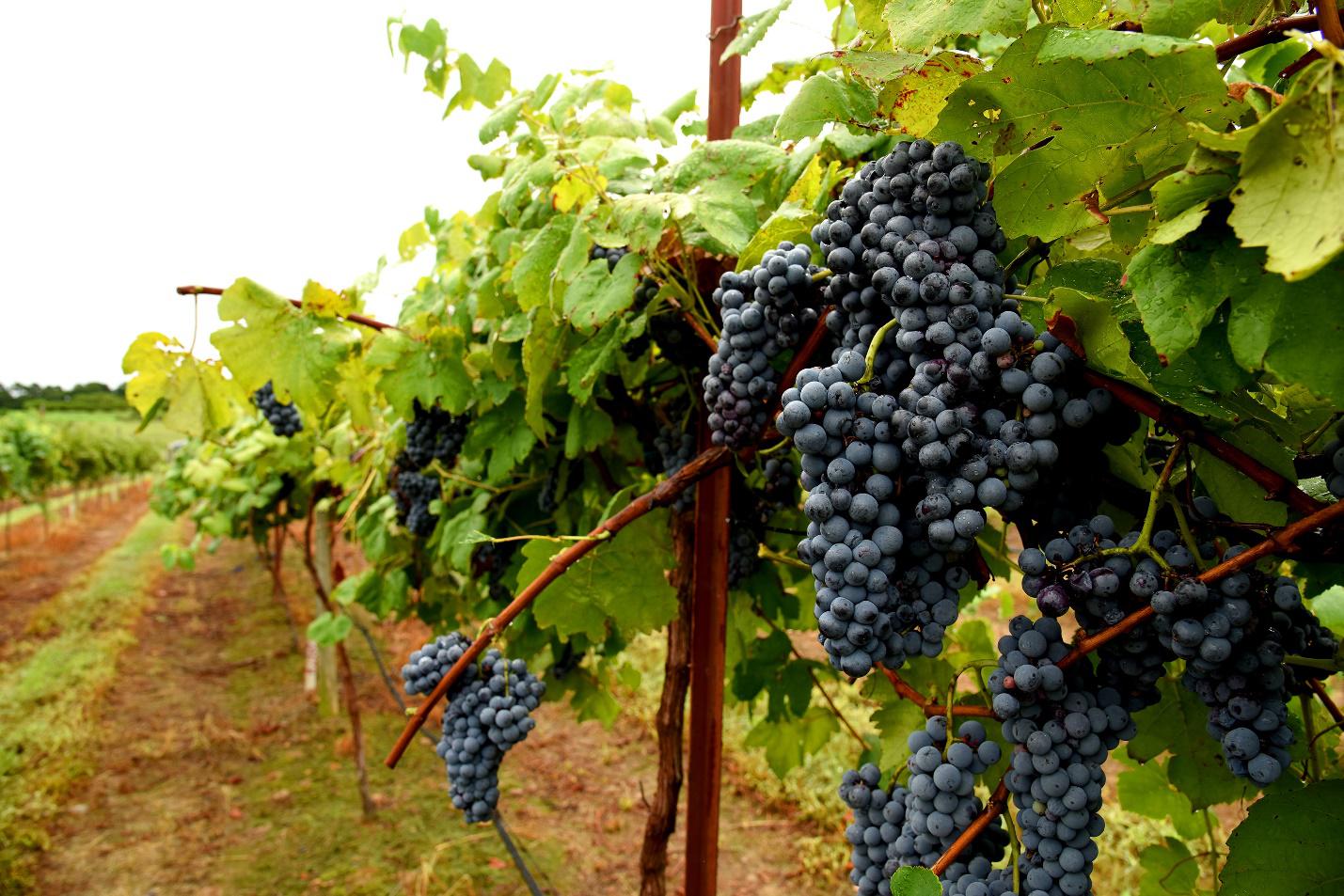Producing Enchantment, Arkansas’ First Grape for Red Wine

The Problem
Arkansas’ harsh climate with cold winters and hot summers makes breeding wine grapes a challenge.
The Research
Decades of development went into breeding Enchantment, Arkansas’ first red wine grape. Arkansas’ climate is tough on wine grapes, compared to other wine-producing states such as California, making it difficult for most wines grapes to grow.
Dr. John Clark, distinguished professor of horticulture and University of Arkansas System Division of Agriculture fruit breeder, began work on Enchantment in 1993 with James N. Moore, distinguished professor emeritus and founder of the Arkansas fruit breeding program. Clark would spend the next two decades overseeing the production of more than 100 wine grape selections, trying to find a balance between the flavor profile and the ability to produce adequate yields year after year in Arkansas.
Enchantment, with its unique combination of genetics from multiple species, fit the bill. The female parent was a cross of Petit Sirah and Alicante Bouschet, and the male parent was a cross of Bouschet Petit and Salvador. It matures around the third week of August and shows some disease resistance. In the 18 years, Enchantment was in production, a light downy mildew infection occurred once and powdery mildew appeared twice.
Enchantment is a teinturier grape, giving it an intense pigmentation that allows winemakers to use it as a standalone grape in wine or blended with others. It’s versatile and can be used to make a rosé, blush or a dry wine. Enchantment’s flavor is similar to vinifera, the species from which most modern grape wines are based, and can range from fruity to earthy. In July 2018, Post Wineries in Altus, Arkansas, began using Enchantment grapes to create a dry red wine also named Enchantment.
The Bottom Line
Enchantment was bred to withstand Arkansas’ climate and its pigmentation and flavor make it versatile for winemakers.
The Researcher

John R. Clark
Distinguished Professor, Horticulture Department
University of Arkansas System Division of Agriculture fruit breeder.
Clark earned his bachelor’s and master’s degrees from Mississippi State University. He earned a Ph.D. from the University of Arkansas in 1983.
Clark leads the Division’s fruit breeding program and his research focuses on the breeding and cultivar development of blueberries, blackberries, and grapes.
»
